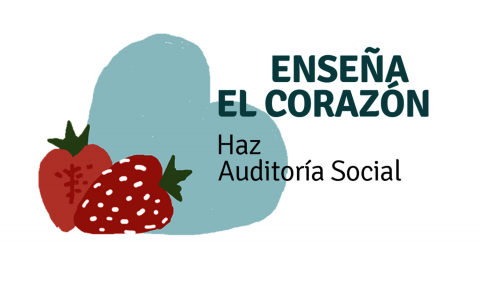
Show your Heart is an impact measurement software that supports several environmental, social and governance (ESG) accounting methods.
It is an an online, open-source tool. It currently offers 13 different ESG accounting methods, allowing adaptation to the entity’s profile (e.g. social cooperatives, social enterprises, non-profits, urban commons), as well as its local and socio-economic context (e.g. specific methods developed by some regional networks within REAS). Each method typically consists of a set of ESG topics, with associated key impact performance indicators and surveys for data collection. All modules share a common set of basic indicators, reflecting the core values of the social economy.
As an example, the Social Balance (Balanç Social) module is expected to be applied annually by XES members, but is open and free for any organisation to use. Besides economic and environmental performance, it covers topics like:

Social commitments
Purchase of goods and services from other social economy entities; production of goods, services or materials that are made available at no cost; promotion of functional diversity and social inclusion.
Workplace quality
Active measures to promote workplace health and improve work-life balance beyond legal obligations; internal policies improving on the conditions stipulated by collective labour agreements; encouraging the training of workers; ensuring the availability spaces for workers’ emotional and physical care.
Democracy and equity
Worker demographics (average age, disability rate, gender disaggregation of management, executive and political positions); participation in the preparation and approval of the management plan and annual budget; online publication of the “Social Balance report”; gap between the highest and lowest remunerations; disclosure of wages to workers; use of non-sexist and inclusive language; adoption, monitoring and evaluation of an equality plan; existence of a protocol for the prevention and handling of sexual harassment.

SHOW YOUR HEART
The tool has been translated to English and Dutch. To use it, an organisation needs to register first. However, we are currently conducting pilots in the Netherlands and we are developing the next version of the tool. We cannot accept new registrations until the pilots have ended and we release the next version of the tool.
Tool features
The tool is web-based. It has a back-end for network administrators and a front-end for organisations (e.g. social enterprises) and their ESG accountants.
Main features for organisations and ESG accountants
- History of earlier ESG accounts, with access to their results, which can be downloaded as a spreadsheet.
- Management of active ESG account in order to provide data.
- Deployment of surveys to collect data from stakeholder groups (e.g. employees, volunteers, clients, suppliers).
- Some methods have an automatic generation of reports presenting the results of an ESG accounting process.
Main features for network administrators
- Maintenance of master data.
- Maintenance of users and organisations.
- Definition of a taxonomy of ESG topics.
- Definition of a library of indicators.
- Definition of ESG accounting methods to be offered by their network to their member organisations (including the data collection surveys).
- Translation of names and descriptions to several languages.
- Management of ESG accounting campaigns.
- Download of aggregate data from all members of their networks in a given campaign.
Features in the roadmap
Some features are not implemented yet but are planned for inclusion in future versions of Show your Heart.
- Business intelligence dashboards for organisations and network administrators.
- Automatic generation of infographics presenting the ESG performance of an organisation or an of all members of a network jointly.
- Support for social impact assessment methods based on a theory of change.
- Artificial intelligence services to facilitate the selection of an ESG accounting method suitable for the needs of an organisation, or the definition of a new one.
- Artificial intelligence services to assist an impact manager define a theory of change for their organisation.
- Interoperability mechanisms to extract data directly from databases of the information systems of an organisation, alleviating the data collection efforts.
